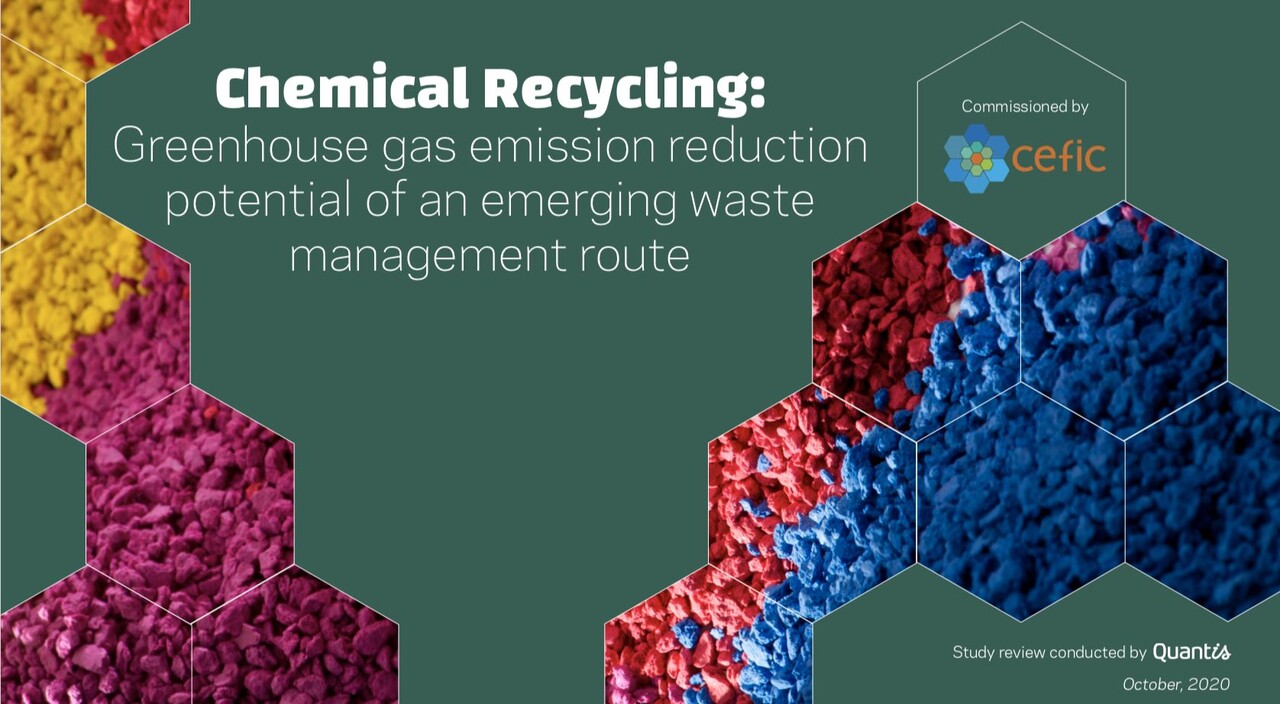
Chemical recycling technologies: part of the solution to plastics waste?
Less than 30% of plastic is collected for mechanical recycling in Europe. Even when plastics are recycled, there are technical limitations that prevent reaching 100% circularity. These gaps need to be filled. The good news: chemical recycling may be part of the solution to improving plastic recycling rates at an industrial scale. First studies indicate that because of its ability to break down materials to their chemical building blocks, chemical recycling has the potential to contribute to boosting plastics recycling rates when avoidance, reuse and mechanical recycling aren’t available.
Commissioned by the European Chemical Industry Council (Cefic), Quantis released a report that examines four different studies about chemical recycling technologies and their GHG emissions for a closer look at their impacts.
We found that plastic can become a fully circular material at a large scale through a smart combination of mechanical and chemical recycling. It can be used as feedstock material, thus avoiding the exploration and refinement of crude oil and corresponding GHG emissions making it independent from other fossil resources and avoiding GHG emissions. There is still some way to go as most of the technologies are only available in demonstration scale and only very limited credible Life Cycle Assessment (LCA) data is available. LCA is an appropriate method to assess the environmental performance of such upcoming technologies, however there is a great need to define rules on how to assess chemical recycling.
This study is relevant to companies and businesses that are looking to improve plastic recycling rates, to move towards a fully circular model. Because of their potential to avoid GHG emissions that can occur in both the production of (waste-based) feedstock and from the current end-of-life treatment of plastic, chemical recycling technologies are expected to play an essential role in establishing a circular and sustainable economy in the chemical industry.
Sustainability consultant on life cycle assessment
3yThank you for sharing the material. I really believe that chemical recycling is a good pathway, however I wonder if the reduced GHG are related to reduced emissions compared to virgin material extraction or due to avoided emissions (credits).
World-Class Plastic Materials Consultant & Independent Environmental Expert, Award-Winning Keynote Speaker, Author, Class Action Expert Witness
3yMechanical recylcing works for >90% of plastic and is proven to be green. Chemical recycling is one way to tackle the rest. https://plasticsparadox.com/plastic-recycling-myths/